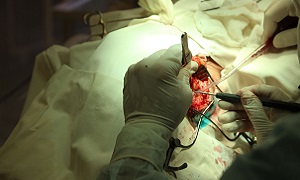Best Cochlear Implant Doctors in India
Here are the most reputed ENT surgeons in India with great expertise in Cochlear Implant procedure.
Best Cochlear Implant Hospitals in India
- City: Bengaluru, India
Hospital Highlights:
- Fortis Hospital Bannerghatta, Bengaluru was established in 2006.
- The hospital is a 276 bedded multi-specialty tertiary care facility.
- The hospital specializes in cutting-edge medical technology and dedicated patient care services.
- The hospital is equipped with state-of-the-art technologies like trans-radial angioplasty, trans-abdominal cardiac surgery, and computerized TKR navigation surgery.
- The hospital provides specialty medical services in cardiology, cardiac surgery, orthopedics, neurology, neuro-surgery, GI, and Minimal Access Surgery (MAS).
- City: Chennai, India
Hospital Highlights:
- Fortis Malar was established in 1992 and was formerly known as Malar Hospital.
- The hospital specializes in cutting-edge medical technology and dedicated patient care services.
- The hospital is multi-specialty, tertiary care facility with 180 beds.
- The hospital offers comprehensive medical care in specialties such as cardiology, cardio-thoracic surgery, neurology, neurosurgery, orthopedics, nephrology, gynecology, gastroenterology, urology, pediatrics, and diabetes.
- City: New Delhi, India
Hospital Highlights:
- Established in 1996, Pushpawati Singhania Research Institute is one of the top hospitals in the NCR region, as well as one of the top facilities in India for gastroenterology. The hospital is one of South Asia’s first institutes in medical and surgical treatment for diseases related to digestion.
- The hospital is equipped with state-of-the art facilities coupled with the latest equipment as well as renowned consultants from various parts of India as well as other parts of the world.
- City: New Delhi, India
Hospital Highlights:
- State-of-the-art technology and devoted healthcare professionals have been brought together under one roof at Venkateshwar Hospital to provide genuine medical care. The hospital’s professionals work together as a team to deliver the best possible treatment to their patients, using the most sophisticated equipment and information technology.
- Venkateshwar Hospital’s mission is to attain global excellence in healthcare by employing evidence-based, ethical clinical practices and cutting-edge technology by a team of highly skilled experts.
- City: New Delhi, India
Hospital Highlights:
- Sir Ganga Ram Hospital, New Delhi is known to provide the latest medical procedures with the latest technology in all of its units.
- The hospital has a team of reputed doctors, nurses, and healthcare professionals that ensure that patients receive quality care at affordable costs.
- Staffed with a team of highly qualified doctors, dedicated nurses, and paramedical and non-medical staff, the hospital aims to lead in healthcare delivery, medical education, training, and research.
- As per the vision of the founder, the hospital also provides free treatment to the economically weaker sections of society.
- Sir Ganga Ram Hospital also provides training to young doctors under the Diplomate in National Board(DNB) program. The DNB program at the hospital was started in 1984 and it is known for currently running the maximum number of DNB specialties in the country. It also has the distinction of having the first bone bank in India.
- City: Kerala, India
Hospital Highlights:
- Established in 2019, Apollo Adlux Hospital is the first Apollo Hospital in Kerala and the 73rd hospital owned by Apollo Group in India. With the state’s most advanced, comprehensive healthcare infrastructure and cutting-edge technologies, Apollo Adlux Hospital stands as an example of medical excellence in Kerala.
- With over 34 multi-specialty departments, the hospital believes in providing the best quality treatment to its patients at affordable rates, ensuring comfort at their difficult times.
- The 300-bed hospital is managed by a team of highly qualified and experienced experts who delivers exceptional hospitality to their patients and treats them with great compassion.
- With its affiliation with the Apollo Hospitals Group, the hospital aims in providing patients with top-notch healthcare services while also serving communities in Kerala.
- The hospital has good railway and road connections, and is conveniently close to Cochin International Airport.
- City: Gurugram, India
Hospital Highlights:
- Situated near DLF Cyber City, Gurugram, Narayana Superspecialty Hospital is one of the top medical facilities in the Delhi NCR region, catering to the needs of the people. Known for its commitment to quality medical care and patient service, the hospital is a state-of-the-art facility with planned and well-equipped sections, which includes a spacious OPD area as well as comfortable patient rooms.
- It is the closest super-specialty hospital from Indira Gandhi International Airport towards Gurugram, and also the nearest super specialty hospital from DLF Cyber City. It is also close to major residential areas in Gurugram.
- It is part of the renowned Narayana Health Group. Established in 2000, by Dr. Devi Shetty, a renowned cardiac surgeon, it has grown to be one fo India’s leading healthcare groups.
- City: Noida, India
Hospital Highlights:
- Fortis Hospital, Noida, stands as one of the oldest and most trusted healthcare institutions in the region, setting a benchmark for comprehensive medical care.
- As the second mega hub hospital in the Fortis Healthcare Group, Fortis Hospital, Noida, upholds a legacy of trust among more than 1.2 million patients. By integrating top-tier professionals with cutting-edge technology, the hospital delivers superior treatment across various medical disciplines.
- Specializing in advanced Neurosciences, Orthopedics, Kidney and Liver Transplant Programmes, Fortis Hospital, Noida has successfully performed over 1,500 transplants, solidifying its reputation as a leader in specialized medical interventions.
Cochlear Implant
Cochlear Implant is a device implanted in the cochlea through a surgical procedure.
The cochlea is a snail shell-shaped bone present in your inner ear.
Any person having severe hearing loss may find Cochlear Implant beneficial. The function of the device is to convert sounds in the form of electrical impulses that the brain interprets. To simply put, it replaces the function of the cochlea.
What is a Cochlear Implant?
It is an electronic medical device that helps in improving hearing in people with moderate to severe hearing loss.
The device electrically stimulates the cochlear nerve and comprises of external and internal components.
Placed behind the ear, the external component contains a microphone and a speech processor. While the microphone receives sound waves, the speech processor turns the sound into digital signals by analyzing it. The transmitter receives the signals followed by an internal receiver.
Implanted beneath the skin, the internal component is also present behind the ear. The receiver turns the signals into electrical impulses. The electrodes in the cochlea receive the impulses that stimulate the cochlear nerve. The cochlear nerve forwards these impulses to the brain to induce a sense of hearing.
Features of Cochlear Implant
A Cochlear Implant restores hearing in people who have severe hearing loss and who cannot hear with the help of hearing aids. It may be unilateral or bilateral, i.e. paced in one or both the ears.
It improves the quality of life by improving the communication of the people with hearing loss.
A Cochlear Implant is for all adults and children (who are at least 6 months old).
People using Cochlear Implants experience:
- Recognition of normal sounds
- The ability to identify the origin of sound
- Better abilities to hear speech
- Can hear television programs, conversations, and music
- Ability to listen even at noisy places
Why do I need a Cochlear Implant?
You may need a Cochlear Implant if you have:
- Limited benefits from other hearing aids
- Severe hearing loss that hinders your communication
- To depend on lip-reading even with hearing aids
- No medical conditions that can increase the risks due to Cochlear Implants
- Expectations from cochlear implants
- Wish to be a part of the hearing rehabilitation
Advantages of a Cochlear Implant
A Cochlear Implant can be beneficial for you. Here are some of the benefits of using a Cochlear Implant:
- Be able to hear distinct sounds
- Hear voices on a phone call
- Watch television programs without difficulty
- Able to hear speech without the need for lip-reading
- Hear music without any difficulty
- Toddlers can learn how to talk
How to prepare for Cochlear Implant surgery?
The doctor will perform the surgery under general anesthesia. This means you will be sleeping during the procedure. You may need to stop or alter some of the medications that you take for a particular time period. You may have to avoid eating or drinking hours before the surgery or night before the surgery.
Cochlear Implant Procedure
Before the procedure
The doctor will evaluate your medical condition to check if Cochlear Implants are a good option for you or not. He or she will conduct an evaluation like:
- Recommend tests for speech and hearing
- Recommend imaging tests like an MRI or CT scan to inspect the condition of your inner ear structure
- Physical examination for assessing the health of your inner ear
- Psychological testing to determine your ability to learn and use Cochlear Implants.
During the procedure
The doctor will make a small incision (or cut) behind your ear and create a hole in a part of the skull bone where the device will rest. He or she will next, create an opening in the cochlea and thread the electrode of the internal device. The internal device remains under your skin and the surgeon will stitch the incision.
After the procedure
You may experience little discomfort over the ears with the implanted device. You may also feel nausea or dizziness. The doctor will discharge you on the day of the surgery or the next day.
The audiologist will activate the implant only after 4-5 weeks of surgery to allow healing of the surgery site. Upon activation, the audiologist will adjust the sound processor and check if the components are working. He or she will instruct you on the usage & care of the device and then set the device so that you can hear.
You may need to undergo rehabilitation to train your brain to understand the sounds that you hear through the implant. Your brain will need time to recognize the various sounds and what they mean. You will achieve the best results when you wear the speech processor continuously while you are awake.
Results
The results of the surgery may vary for each individual. The age when you lost hearing and the length of time between your hearing loss & surgery is amongst the factors that affect the outcome of the surgery. Children suffering from hearing loss will best benefit when they undergo Cochlear Implant surgery at a young age. For adults, it is better to take the surgery within a short period of time from hearing loss.
People who are fit for the surgery will be able to clearly hear the voice with the device. Cochlear Implant may improve the severity with which tinnitus is present. There are very fewer chances that tinnitus will worsen with the surgery.
Risks
Although it is safe to undergo cochlear implantation surgery, you may have some risks. These risks may be:
- Implanting the device may cause some loss of natural hearing in a few individuals.
- You may need to visit the surgeon again for the repair or replacement of a faulty internal device.
- The adults and children undergoing surgery need to take vaccination to minimize the risk of meningitis.
Some rare complications associated with the cochlear implantation surgery may include: - Infection at the site of surgery
- Balance problems
- Disturbance with the taste
- Bleeding
- Infection due to device
- Dizziness
- Facial paralysis










